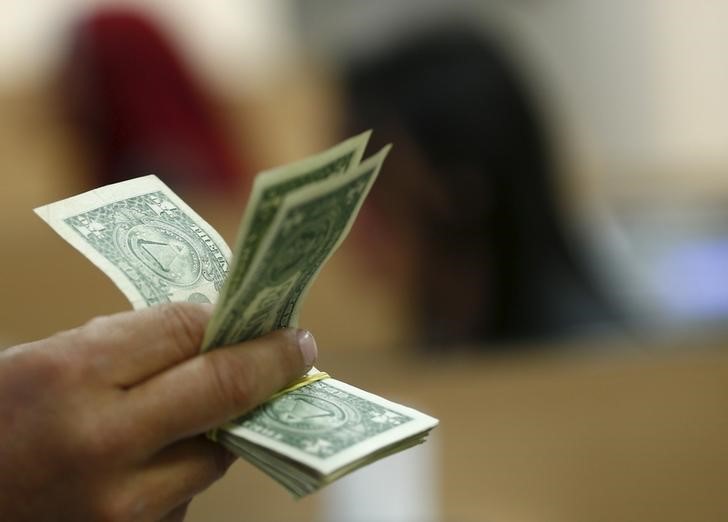Investing.com - The dollar was wallowing at seven-month lows against a currency basket on Thursday after central bankers in Europe, the UK and Canada indicated that they could soon move towards tighter monetary policy.
The U.S. dollar index, which measures the greenback’s strength against a trade-weighted basket of six major currencies, was down 0.33% at 95.48 by 07.51 GMT (03.51 ET), the lowest trough since October 3.
The euro was trading at one-year highs against the dollar, with EUR/USD advancing 0.41% to 1.1424.
The single currency built on gains made after European Central Bank President Mario Draghi indicated on Tuesday that the bank could soon start to unwind its quantitative easing program.
The euro was at 16-month highs against the yen, with EUR/JPY up 0.45% at 128.32.
The pound was at one-month highs against the dollar, with GBP/USD rising 0.46% to trade at 1.2985.
Sterling leapt higher after Bank of England Governor Mark Carney said Wednesday that some removal of monetary stimulus is likely to become necessary as spare capacity in the economy erodes.
The BoE’s monetary policy committee was split 5-3 at its meeting earlier this month on whether to raise interest rates from a record-low 0.25%. Carney voted to keep rates unchanged.
The Canadian dollar also rallied, hitting its highest levels since February after Bank of Canada Governor Stephen Poloz said Wednesday that rate cuts in 2015 have done their job and the bank now needs to consider its options.
USD/CAD was last down 0.2% at 1.3011, after falling around 1.2% in the previous session.
Federal Reserve Chair Janet Yellen reiterated earlier this week that the U.S. central bank would continue to gradually raise interest rates after the U.S. central bank hiked rates earlier this month.
But the subdued inflation outlook in the U.S. has raised doubts over whether the Fed will be able to stick to its planned tightening path.
The dollar pushed higher against the yen, with USD/JPY rising 0.17% to 112.48.
A summary of the Bank of Japan’s latest meeting published on Monday showed that policymakers favor sticking to ultra-loose monetary policy, with inflation still well below the banks 2% target.
The divergent monetary policy outlook between the Fed and the BoJ has helped support the dollar against the yen.
